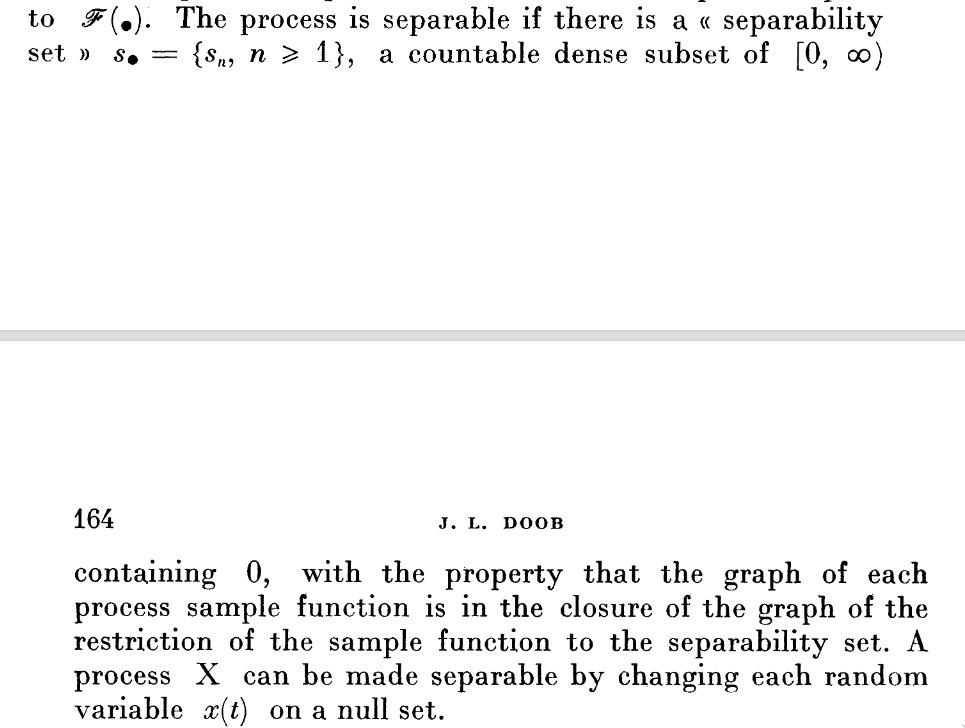This question is a cross-post from math.stackexchange.com. I am reposting it here since I didn't receive an answer there. The original post can be found by this link.
In the following excerpt from Meyer's Probability and Potentials he claims that a non-random process $X(t, \omega) = f ( t )$ is separable for any choice of $f$. And this example seems to work under the definition he gives above.

I cannot see, however, how this relates to other definitions of separability, especially the Doob's intuitive definition (see second attachment) as processes closable from a countable set.

Shouldn't we at least ask for some regularity of $f$ in this example? Or even just measurability?
